Nothing sends shivers down my spine like seeing the potential of a young person being shattered. It’s the highest show of a leadership that only cares about itself and has no concern about the future.
If you carefully ponder it, there’s something quietly tragic about the number of young people in Kenya taking paths less traveled and choosing not to join a university or college.
How do we even start to imagine that a whopping 42,000 Kenyan students qualified for university and college in 2024, yet they chose not to join?
Doesn’t this suffice to prove that millions of young people are on the verge of giving up on higher education and pursuing other pathways of life besides, or more accurately, without higher education?These young people, who have spent years navigating Kenya’s rigid and high-stakes education system, arrive at what should be the most rewarding point in their academic journey, only to walk away. Why?Not because they no longer value learning, or that they changed their minds. But because education, in its current form and cost in Kenya, has priced them out. It’s been made a fruit too lofty for them to pluck. And even worse, it’s in their own country. We tell children from an early age that education is the ladder. That if they work hard, if they sacrifice, if they pass, there will be something waiting on the other side. A job. A future. A place at the table.But for over 16% of the qualified 2024 KCSE candidates, there was no transition. Only silence. Only uncertainty.
Available were 986,137 placement openings for 2025, which could potentially absorb all 2024 national examination students and even those of previous years who have never been placed.
The Kenya Universities and Colleges Central Placement Service (KUCCPS) offered only 310,502 students a placement, despite institutions of higher learning having room for nearly one million.
According to Kenya’s Education Cabinet Secretary, Julius Ogamba, out of the 244,563 students who qualified for university degrees after achieving a C+ or above, only 201,695 (83%) applied for placement.
Others, in tens of thousands, did not even bother to apply. And this wasn’t pegged on space. No, what’s the point of applying for a course you cannot even afford? Not to mean we should clap for them, but I feel we need a more open conversation to fully understand them without just throwing around what we think is the solution. And now, as if to acknowledge this quiet exodus, a solution is proposed: university tuition fees will be slashed, some by up to 40%, beginning September 2025.Yes, it’s a step in the right direction, we can conservatively say. But we must ask: why now? Why only after the consequences have become visible, and tens of thousands of young lives’ hopes have already been shattered?
The Price of Being Early
For years, continuing students have paid the full cost, some up to KSh. 612,000 per year for Medicine, others scraping together what they could to study Engineering, Pharmacy, or Veterinary Medicine.
Families sold land. Took loans. Some parents emptied their entire pensions to keep a child in school. Now, new students are being told they’ll pay a fraction of that amount.It raises an unsettling question: Were those who came earlier simply unlucky? Or are they the sacrificial lambs of a system that reforms only when public confidence collapses? Should we really put people’s futures at risk in the name of testing policies?
Is Education a Privilege?
If you’ve been around for some time, you may easily notice that the conversation isn’t just about tuition fees, but the kind of society we are building.When university education becomes something only the wealthy can pursue, when the system no longer guarantees a return on investment, when a student is told “you qualify, but it’s up to you to afford it,” we must ask ourselves: what, really, is the point of merit?We risk normalizing a model where the best opportunities go to those with the deepest pockets, not the sharpest minds. We’re building a society where effort isn’t enough.
Where dreams are put on hold until a parent gets paid, or until the Higher Education Loans Board (HELB) disburses funds, if it ever does! Haven’t thousands complained of never having received the funds, or very late disbursements?
Reforms Only After the Storm
The new fee reduction plan, and the revised Means Testing Instrument (MTI) that will categorize students based on family income, assets, and needs, are important steps. But again, they come after the storm.In tens of thousands, as a country, we’ve already lost students to depression, to early marriages, to informal work that steals their potential, and to hopelessness.
We’ve seen others abandon their dreams altogether, opting instead to hustle their way through life, diploma-less, degree-less, but determined.Must our education policies always be reactionary, never anticipatory?It’s time we asked the harder questions, not just of the government, but of ourselves as a country, and at large as a continent, because many other countries are still bedevilled by this monster.Why is education so expensive in a country where the majority live below the poverty line?
Why does a medical student at one public university pay nearly twice as much as another student in the same course, in the same country?
Why is higher education financing treated as an emergency measure, not a constitutional priority?
Why do reforms often benefit the future, but never consider justice for those who endured the past?While policymakers may take these to be rhetorical questions, they are not. They demand answers, and more importantly, action.
The African Paradox
Kenya is not alone. Across Africa, higher education is increasingly becoming elitist, even as governments call for innovation, youth empowerment, and knowledge economies.
Or is it satisfactorily better in your country?
We ask for solutions, but price education as though it were a luxury hotel stay. The governments want thinkers, scientists, and problem-solvers, but give them debts before they earn their very first diplomas and degrees.
Then we collectively wonder why they leave, not even for greener pastures, but for pastures! The paradox is glaring: we need education more than ever, but we’ve made it harder to access than ever before.
Time to Reimagine, Not Just Reduce
Reducing fees is one part of the puzzle. But the larger issue is philosophical: what role should education play in national transformation? Is it a commodity, a service, a right, or a shared investment?Because that’s the only way to stop designing systems that punish ambition.We must move toward a financing model that doesn’t just measure need, but anticipates it. One that allows a student to choose a course based on passion, not price tag.And most importantly, one that recognizes that every policy delay costs someone a future.
Restoring Trust
Education must be many things, but above all, it must be trustworthy.Students need to trust that the sacrifices they make will lead somewhere. Parents need to trust that supporting their child’s education will not bankrupt the family.
The public needs to trust that government reforms aren’t just face-saving maneuvers, but long-term commitments, yet the reforms must be inclusive and profitable.If we lose that trust, we don’t just lose enrolment numbers but an entire generation of potential.To those who shape education policy, your decisions ripple far beyond boardrooms. They shape families and determine futures. They either widen or close the gap between the privileged and the aspiring.This moment demands courage. Not just to reduce fees, but to reimagine the entire architecture of access. To center empathy in policymaking. To stop sacrificing the present while planning for a better future.The young people of this country, and of Africa, are not asking for shortcuts. They’re asking for a fair shot.I believe the best thing would be to give it to them before it’s too late again.
____________________
Benvictor Makau is a visionary leader, digiprepreneur, and change-maker with a global perspective. As the Founder and CEO of Benmak Virtual Assistants (www.benmakva.com), he leads a team of virtual experts in supporting busy professionals and organizations to thrive by delivering world-class virtual assistance and digital marketing solutions.
He also serves as the Assistant Director of The Trueness Project, a philanthropic organization transforming lives globally through philanthropy in education, leadership mentorship, and peace promotion.
A highly-experienced journalist and editor, his work is rooted in a profound belief in intentional empowerment.
Beyond his organizational roles, Benvictor is an accomplished bestselling author, storyteller, and content strategist. He has reviewed and edited numerous publications, further amplifying his voice in the global thought leadership arena.
Through his journey, Benvictor inspires others to embrace purpose-driven leadership and navigate the complexities of the modern world with integrity and determination.
His contact: benvictorisaac@gmail.com
https://www.linkedin.com/in/benvictor-makau



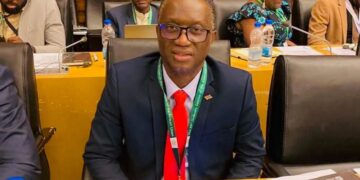


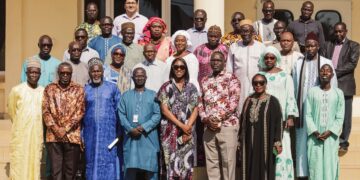
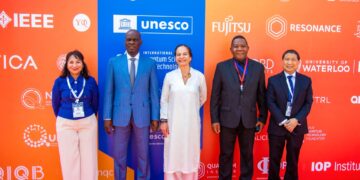






















































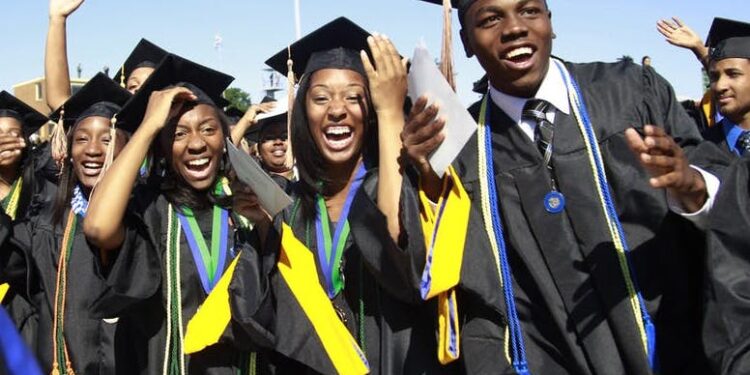







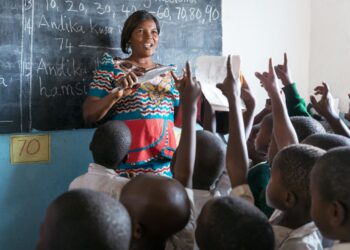

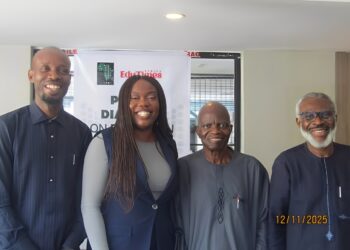










 EduTimes Africa, a product of Education Times Africa, is a magazine publication that aims to lend its support to close the yawning gap in Africa's educational development.
EduTimes Africa, a product of Education Times Africa, is a magazine publication that aims to lend its support to close the yawning gap in Africa's educational development.